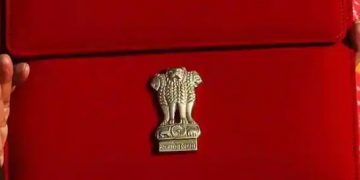New Delhi: The free trade agreement between India and the four-nation European bloc EFTA will be implemented from October 1, Commerce and Industry Minister Piyush Goyal said Saturday.
The two sides signed the Trade and Economic Partnership Agreement (TEPA) March 10, 2024.
Under the pact, India has received an investment commitment of USD 100 billion in 15 years from the grouping while allowing several products, such as Swiss watches, chocolates, and cut and polished diamonds, at lower or zero duties.
“India-EFTA TEPA to come into effect from 1st October,” Goyal said in a post on X.
The European Free Trade Association (EFTA) members are Iceland, Liechtenstein, Norway, and Switzerland.
The bloc has committed an investment of USD 100 billion — USD 50 billion within 10 years after the implementation of the agreement and another USD 50 billion in the next five years — which would facilitate the creation of 1 million direct jobs in India.
This is a first-of-its-kind pledge agreed upon in any of the trade deals signed by India so far.
The commitment is the key substance of the agreement, which took almost 16 years to conclude, for India in return for opening its markets for several products coming from the EFTA nations.
The biggest trading partner of India in the bloc is Switzerland.
India has low trade volumes with the remaining three countries.
In the pact, India is offering 82.7 per cent of its tariff lines or product categories, which cover 95.3 per cent of EFTA exports, of which more than 80 per cent of imports are gold.
Domestic customers will get access to high-quality Swiss products, such as watches, chocolates, biscuits, and clocks, at lower prices as India will phase out customs duties under the trade pact on these goods over 10 years.
In the services sector, the commerce ministry has earlier stated that India has offered 105 sub-sectors to the EFTA, like accounting, business services, computer services, distribution and health.
On the other hand, the country has secured commitments in 128 sub-sectors from Switzerland, 114 from Norway, 107 from Liechtenstein, and 110 from Iceland.
Segments, where Indian services will get a boost, include legal, audio-visual, R&D, computer, accounting, and auditing.
Further, the pact would provide an opportunity for domestic exporters to integrate into the EU (European Union) markets. Over 40 per cent of Switzerland’s global services exports are to the EU. Indian companies can look to Switzerland as a base for extending their market reach to the EU.
India-EFTA two-way trade was USD 24.4 billion in 2024-25.
PTI






































